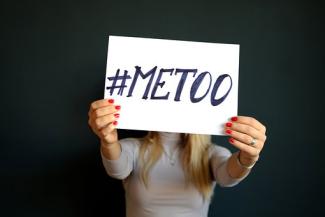What is Revenge Porn and Image-based sexual abuse?
Judith Thompson 15-09-2022
‘Revenge porn’ refers to private sexual videos or photos of someone shared without that person’s consent, either online or offline. Revenge porn has the power to damage lives and end careers. It can lead to criminal prosecutions, as well as to awards of damages in the civil courts.
The term ‘revenge porn’ can be misleading: ‘revenge’ implies the offence has been committed as a response to an action of the victim. In fact, the only person who is to blame is the perpetrator. A more accurate term that is also used is ‘image based sexual abuse.’
In the USA, music producer and DJ Diplo (Thomas Wesley Pentz) has recently won his case against a woman who made threats of revenge porn.
Closer to home, former Love Island contestant Zara McDermott had intimate images shared without her consent twice, and shared the effects on her mental health in a BBC documentary, where she called for more support for victims.
In August a Durham law professor appeared on Panorama to discuss this rapidly evolving area of law, highlighting the loopholes that mean for a crime to have taken place, a perpetrator must be shown to have intended to cause distress to the victim when sharing intimate images without consent.
How common is revenge porn?
Since the Act came into effect in 2015, reports of image based sexual abuse have been rising steadily. Though male victims – such as DJ Diplo - exist, the majority of victims are women; 64% of those that make reports are female. Other key demographics include transgender people, people in same-sex relationships, and those in a relationship where coercion and control are prevalent.
Last year, 38 UK police forces recorded a total of 7,357 offences – a 39% jump from 5,291 in 2020. Victims included children as young as 11.
According to Refuge and the Revenge Porn Helpline, these figures are not an accurate representation, since only a fraction of victims report the crime to the police. Additionally, around a third of revenge porn cases that are reported in the UK are dropped by victims wary of a criminal justice process that does not guarantee anonymity.
What can the police do about revenge porn?
Since 2015 in England and Wales, it has been an offence for someone to share a private sexual image or video of someone without their consent, and with the intention of causing them distress. Under Section 33 of the Criminal Justice and Court Act 2015, it is punishable by up to two years in prison.
The Domestic Abuse Act 2021 extended that offence to include threats to disclose such images, even where those images do not actually exist. The threat to disclose images carries the same maximum sentence as actually sharing them. Additionally, it can be an offence for other people to share the images or video with others, even if they were not the person to first share them.
Although previously such offences could be dealt with under legislation such as the Communications Act 2003, the Malicious Communications Act 1988, or Protection from Harassment Act 1997, the legislation introduced in 2015 made sharing of such images or films a specific offence in its own right, and covered all social media platforms and electronic communication.
What are the defences to a revenge porn charge?
There are certain valid defences to a charge of revenge porn provided by the 2015 Act:
- It is not an offence under this section for the person to disclose the photograph or film to the individual shown in the photo or film. In other words, the material has to be shared with a third party;
- It is a defence for a person charged with an offence under this section to prove that he or she reasonably believed that the disclosure was necessary for the purposes of preventing, detecting or investigating crime;
- It is a defence for a person charged with an offence under this section to show that the disclosure was made in the course of, or with a view to, the publication of journalistic material, and he or she reasonably believed that it was in the public interest;
- It is a defence for a person charged with an offence under this section to show that he or she reasonably believed that the photograph or film had previously been disclosed for reward, whether by the individual or another person, and he or she had no reason to believe that the previous disclosure for reward was made without the consent of the individual.
Can damages be awarded in revenge porn cases?
A criminal court cannot order the defendant to pay any significant damages to their victim. If a victim wishes to sue someone who has shared intimate images of them, they must use civil court procedures and bring a claim against their opponent.
Typically, the claimant would bring a claim for breach of privacy if nude images are shared, and the claimant would seek an injunction and damages against the defendant. Defendants can often be ordered to pay tens of thousands of pounds to claimants in these cases, even more where the breaches of privacy are particularly severe.
If you are a victim of revenge porn, image based sexual abuse, and if you want to make a claim for damages, contact us today to speak to an expert lawyer.
Article credit: Lalla Merlin

